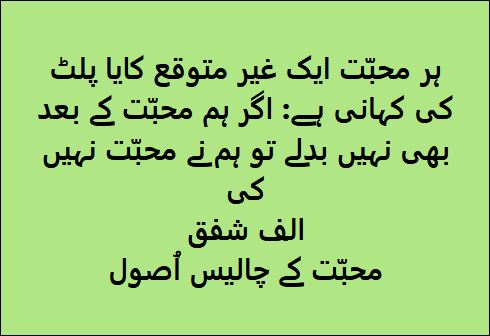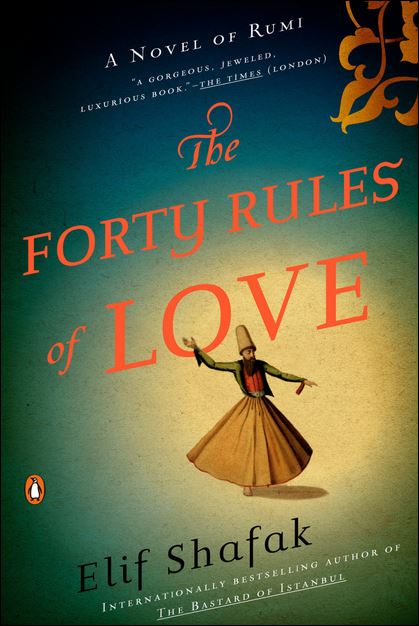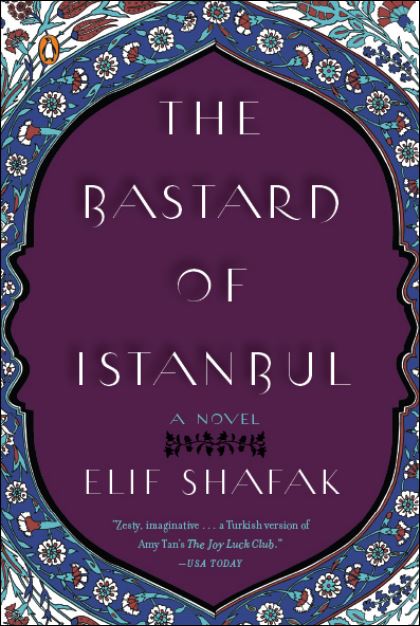Dareechah-e-Nigaarish
Dareechah-e-Nigaarish
Toronto, ON
Canada
talat
- Home
- What's New this month?
- Urdu eBook: How to Type and Publish Urdu eBook
- Setting Up an Urdu eBook Publishing Company
- Urdu Content Web Site: How to Build Urdu Web Site
- Urdu eBooks on the Internet
- Improve Your Writing Skills
- Modern Urdu Poems
- Videos of Majeed Amjad Poems
- Early Poems of Majeed Amjad
- Majeed Amjad: On Man and his Abode
- Majeed Amjad : Romantic Poems
- Majeed Amjad: Socio-Political Poems
- Majeed Amjad: Poems about Children
- Majeed Amjad: Poems about Art
- Munir Niazi : Urdu Poems
- Munir Niazi: Poems about Nighat
- Munir Niazi: Poems Narration and Interview Videos
- Fahmida Riaz : Poems
- Fehmida Riaz : Videos
- Ahmad Faraz: Urdu Poems
- Sarmad Sehbai : Urdu Poems
- Sarmad Sehbai : Videos
- Ahmed Shamim: Biography
- Ahmed Shamim: Poems
- Ahmed Shamim: Videos
- Zahid Dar : Biography
- Zahid Dar: Poems
- Parveen Shakir: Poems
- Sarwat Hussain: Poems
- Sara Shagufta Poems
- Amjad Islam Amjad: Poems
- Maqsood Wafa: Urdu Poems
- Iftekhar Bukhari: Urdu Poems
- Farooq Hassan: Biography
- Farooq Hassan: Urdu Poems
- Mohsin Naqvi: Poems
- Modern Urdu Ghazals-1
- Videos of Majeed Amjad Ghazals
- Majeed Amjad : Ghazals
- Munir Niazi : Ghazals
- Munir Niazi: Ghazal Videos
- Nasir Kazmi : Ghazals
- Nasir Kazmi: Ghazal Videos
- Ahmad Mushtaq: Ghazals
- Ahmad Mushtaq: Videos
- Parveen Shakir : Ghazals
- Parveen Shakir: Videos
- Ahmad Faraz : Ghazals
- Ahmad Faraz: Videos
- Mustafa Zaidi: Ghazals
- Mustafa Zaidi: Videos
- Adeem Hashmi : Ghazals
- Shabnam Shakil : Ghazals
- Zaheer Kashmiri: Modern Urdu Ghazals
- Saltanat Qaiser: Ghazals
- Shahryar: Urdu Ghazals
- Shahryar Ghazals: Music Videos
- Shahryaar: Ghazal Audio Files
- Soofi Tabassum Ghazal Videos
- Saifuddin Saif: Ghazals
- Saifuddin Saif: Music Videos
- Saifuddin Saif: Critique of Craft
- Saghir Siddiqui: Biography
- Saghir Siddiqui : Ghazals
- Saghir Siddiqui: Videos
- Sarmad Sehbai : Ghazals
- Meena Kumari : Ghazals
- Meena Kumari Sings her Ghazals
- Modern Urdu Ghazals-2
- Zafar Iqbal Ghazals
- Obaidullah Aleem: Ghazals
- Athar Nafees: Ghazal Videos
- Hameeda Shaheen: Ghazals
- Sudarshan Faakir: Urdu Ghazals
- Imdad Husain Ghazals
- Khatir Ghaznavi: Ghazals and Audio Gallery
- Shakaib Jalali: Ghazals
- Ahmed Shamim: Ghazals
- Mohsin Naqvi: Ghazals
- Fareed Javaid: Ghazals
- Aanis Moeen Ghazals
- Javed Qureshi: Ghazals and Audio Gallery
- Maqsood Wafa: Ghazals
- Urdu Songs-1
- Modern Urdu Songs
- Majeed Amjad: Urdu Songs
- Munir Niazi: Song Videos
- Sahir Ludhianvi Song Videos
- Sahir Ludhianvi Songs: Audio Files
- Kaifi Azmi Songs: Text and Videos
- Rajinder Krishan Songs
- S. H. Bihari Songs
- Majrooh Sultanpuri Songs
- Gulzar Song Videos
- Gulzar Songs
- Indeevar: Urdu Songs
- Hasrat Jaipuri Songs
- Bharat Vyas: Urdu Songs
- Shakeel Badayuni : Song Videos
- Anand Bakhshi: Songs
- Anand Bakhshi Songs: Videos
- Raja Mehdi Ali Khan Songs
- A. M. Turaz Songs
- Sudarshan Faakir: Urdu Songs
- Urdu Songs-2
- Irshad Kamil Songs
- Fayyaz Hashmi Songs
- Nakhshab Jarchavi: Songs and Ghazals
- Asad Bhopali Song Videos
- Manoj Muntashir: Urdu Songs
- Masroor Anwar Songs
- Saba Afghani Song Mere Mehboob Na Ja
- Sarmad Sehbai : Urdu Songs
- Sarmad Sehbai: Song Videos
- Amjad Islam Amjad: Urdu Songs
- Naqsh Lyallpuri Songs
- Parveen Shakir: Urdu Songs
- Amir Zaki Songs
- Kulwant Jani Songs and Music Videos
- Building Blocks of Nostalgia Nagar
- Building Blocks of Nostalgia Nagar 02
- Pehchaan Aashkaar Kartay Safar kay Geet
- Fusion Music Urdu Song Videos
- Modern Punjabi Poetry
- Problems in Typing Punjabi using Urdu Fonts
- New Shahmukhi Alphabet Characters for some Quintessential Punjabi Sounds
- Munir Niazi Punjabi Poetry
- Amrita Preetam Punjabi Poetry
- Shiv Kumar Batalvi : Biography
- Shiv Kumar Batalvi Poems
- Shiv Kumar Batalvi Songs
- Videos of Shiv Kumar Batalvi's Poetry
- Nasreen Anjum Bhatti: Biography
- Nasreen Anjum Bhatti: Punjabi Poems
- Paash (Avtaar Singh Sandhu)
- Manzoor Jhalla: Songs
- Manzoor Jhalla Song Videos
- Ahmad Rahi: Song Videos
- Tanvir Naqvi Punjabi Song Videos
- Hazeen Qadri: Punjabi Songs
- Khawaja Pervaiz Punjabi Songs
- Nasreen Anjum Bhatti: Poems
- Professor Mohan Singh: Punjabi Poems
- New Punjabi Songs
- Saraiki Songs
- Fusion Music Punjabi Song Videos
- Punjabi Folk Songs
- Punjabi Folk Songs: Video Gallery
- Punjabi Folk Songs: Audio Gallery
- Shah Husain Kafis: Audio Gallery
- Syed Asif Shahkar: Punjabi Poems
- New Voices !!
- Hum Kahaan se chale thay
- People's History of Pakistan : First Set of Videos
- People's History of Pakistan: 2nd Set of Videos
- A Leftist View of Pakistan's History
- Progressive Writers Movement (India, Pakistan)
- Dr Rasheed Jahan: Short Story Writer, Playwright
- Sajjad Zaheer: London Kee Aik Raat
- Sajjad Zaheer: Progressive Writers Movement & the Left
- Zaheer Kashmiri: Leftist Politics in British India
- Qamar Yoorish: Short Story Writer
- Shahid Mahmood Nadeem: Playwright/Director
- Missing Persons in Pakistan: Activists, Journalists, Writers
- Tayyaba (10 Yr Old Pakistani Maid) Tortured
- 100,000 Pakistani Laborers Sent Back from Saudi Arabia
- Mosque Schools in Pakistan
- An Alternative History of Man with Videos
- English Translations of Urdu Poetry
- Translations of Foreign Poetry
- Urdu Fiction Writers
- Dr Rasheed Jahan: Feminist Progressive Urdu Fiction Writer
- Sajjad Zaheer: Modern Urdu Fiction Writer
- Ghulam Abbas
- Saadat Hasan Manto
- Ismat Chughtai
- Quratulain Haider
- Krishan Chander: Urdu Novelist & Short Story Writer
- Aziz Ahmad
- Hajra Masroor: BioSketch
- Hajra Masroor: Short Stories
- Jamila Hashmi
- Abdullah Hussein: BioSketch
- Abdullah Hussein: Selected Passages from his Novels
- A. Hameed
- A. Hameed: Photo Gallery
- Julien Columeau: Urdu Novelettes, Short Stories
- Punjabi Fiction Writers
- Third World Fiction Writers
- Developed World Fiction Writers
- Art Films
- SCENES from Art Films
- Elia Kazan's "America America"
- Taiwanese Art Films
- Chinese Art Films
- Some Indian Art Films
- Avishkaar: Indian Art Film 1973
- Mrinal Sen: Antareen (The Confined)
- Indian Art Films-1: YouTube Links
- Indian Art Films-2: YouTube Links
- Indian Romantic Comedies: YouTube links
- Iranian Art Movies
- Italian Art Films
- American Art Films
- New Zealand Art Films
- British Art Films
- Urdu Publishers in Pakistan
- Punjabi Publishers in Pakistan
- Book Stores in Pakistan
- Links to Web Resources
- Videos Talat Afroze Poems-1
- Videos Talat Afroze Poems-2
- Talat Afroze: Urdu Poems
- Talat Afroze: Urdu Songs
- Talat Afroze: Urdu Ghazals
- Talat Afroze: Punjabi Poems
- Talat Afroze: Short Stories
- Talat Afroze: Urdu Novel (in preparation)
- About Us
- Contact Us
Elif Shafak Novels

Elif Shafak
Turkish-British novelist; b. 1971
Bio-Sketch courtesy of Wikipedia
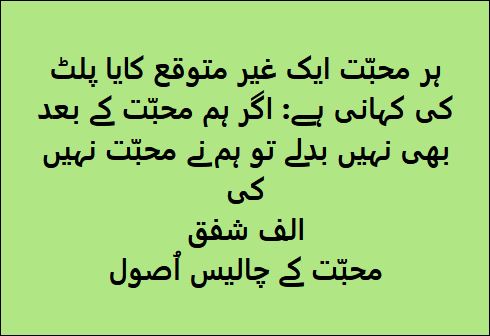
She says that growing up in a dysfunctional family, dealing with the separation of her parents and being raised by a single mother were the difficulties she faced.
However, being raised by a household run by women (her Mom and maternal grandma) instead of a man, allowed her freedom to grow intellectually as a young girl and a young woman. She met her half-brothers for the first time when she was in her mid-twenties.
Shafak added her mother's first name— Turkish for 'dawn' —to her own when constructing her pen name at the age of eighteen. Shafak spent her teenage years in Madrid (Spain), Jordan and Germany.
Elif Shafak (b.1971) is a Turkish-British novelist, essayist, public speaker, political scientist (PhD in Political Science) and activist. Shafak writes in Turkish and English, and has published 9 novels in English. She is best known for The Gaze, The Bastard of Istanbul, The Forty Rules of Love, Three Daughters of Eve and 10 Minutes 38 Seconds in This Strange World. Her books have been translated into 55 languages and been nominated for several literary awards. Described by The Financial Times as "Turkey's leading female novelist", several of her works have been bestsellers in Turkey and internationally.
Her works have prominently featured the city of Istanbul, and dealt with themes of Eastern and Western culture, roles of women in society, and human rights issues. Certain politically challenging topics addressed in her novels, such as child abuse, genocide of Yazidi people and the Armenian genocide, have led to legal action from the Turkish government and has forced Shafak to leave Turkey and emigrate to Britain.
Shafak also holds a PhD in political science. An essayist and contributor to several media outlets, Shafak has advocated for women's rights, minority rights, and freedom of speech.
The novels of Elif Shafak (Turkish-British novelist; b. 1971)
1999 The Gaze
2002 The Flea Palace
2004 The Saint of Incipient Insanities
2006 The Bastard of Istanbul
2009 The Forty Rules of Love: A Novel of Rumi
2011 Honour
2013 The Architect's Apprentice
2016 Three Daughters of Eve
2018 Ten Minutes 38 Seconds in this Strange World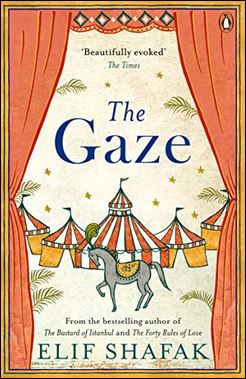
"I didn't say anything. I didn't return his smiles. I looked at him in the wide mirror in front of where I was sitting. He grew uncomfortable and avoided my eyes. I hate those who think fat people are stupid.'
An obese woman and her lover, a dwarf, are sick of being stared at wherever they go, and so decide to reverse roles. The man goes out wearing make up and the woman draws a moustache on her face. But while the woman wants to hide away from the world, the man meets the stares from passers-by head on, compiling his 'Dictionary of Gazes' to explore the boundaries between appearance and reality.
Intertwined with the story of a bizarre freak-show organised in Istanbul in the 1880s, The Gaze considers the damage which can be inflicted by our simple desire to look at others.
"Beautifully evoked" - The Times
"Original and Compelling" - TLS
"Plays with ideas of beauty and ugliness like they're Rubik's cubes" - Helen Oyeyemi
"Entertaining and affecting" - Publishers' Weekly
Elif Shafak is the acclaimed author of The Bastard of Istanbul and The Forty Rules of Love and is the most widely read female novelist in Turkey. Her work has been translated into more than thirty languages. She is a contributor for The Telegraph, Guardian and the New York Times and her TED talk on the politics of fiction has received 500 000 viewers since July 2010. She is married with two children and divides her time between Istanbul and London.
In this lyrical, exuberant tale, acclaimed Turkish-British author Elif Shafak, incarnates Rumi's timeless message of love. The Forty Rules of Love unfolds two tantalizing parallel narratives—one contemporary and the other set in the thirteenth century, when Rumi encountered his spiritual mentor, the whirling dervish known as Shams of Tabriz—that together explore the enduring power of Rumi's work.
Ella Rubenstein is forty years old and unhappily married when she takes a job as a reader for a literary agent. Her first assignment is to read and report on Sweet Blasphemy, a novel written by a man named Aziz Zahara. Ella is mesmerized by his tale of Shams's search for Rumi and the dervish's role in transforming the successful but unhappy cleric into a committed mystic, passionate poet, and advocate of love. She is also taken with Shams's lessons, or rules, that offer insight into an ancient philosophy based on the unity of all people and religions, and the presence of love in each and every one of us. As she reads on, she realizes that Rumi's story mirrors her own and that Zahara—like Shams—has come to set her free.
From Publishers Weekly
In her second novel written in English, The Bastard of Istanbul, Turkish-British novelist Elif Shafak tackles Turkish national identity and the Armenian Genocide "question" in her signature style. In a novel that overflows with a kitchen sink's worth of zany characters, women are front and center: Asya Kazanci, an angst-ridden 19-year-old Istanbulite is the bastard of the title; her beautiful, rebellious mother, Zeliha (who intended to have an abortion), has raised Asya among three generations of complicated and colorful female relations (including religious clairvoyant Auntie Banu and bar-brawl widow, Auntie Cevriye). The Kazanci men either die young or take a permanent hike like Mustafa, Zeliha's beloved brother who immigrated to America years ago. Mustafa's Armenian-American stepdaughter, Armanoush, who grew up on her family's stories of the 1915 genocide, shows up in Istanbul looking for her roots and for vindication from her new Turkish family. The Kazanci women lament Armanoush's family's suffering, but have no sense of Turkish responsibility for it; Asya's boho cohorts insist there was no genocide at all. As the debate escalates, Mustafa arrives in Istanbul, and a long-hidden secret connecting the histories of the two families is revealed. Shafak was charged with "public denigration of Turkishness" when the novel was published in Turkey earlier this year (the charges were later dropped). She incorporates a political taboo into an entertaining and insightful ensemble novel, one that posits the universality of family, culture and coincidence. (Jan. 22)
Copyright © Reed Business Information, a division of Reed Elsevier Inc. All rights reserved.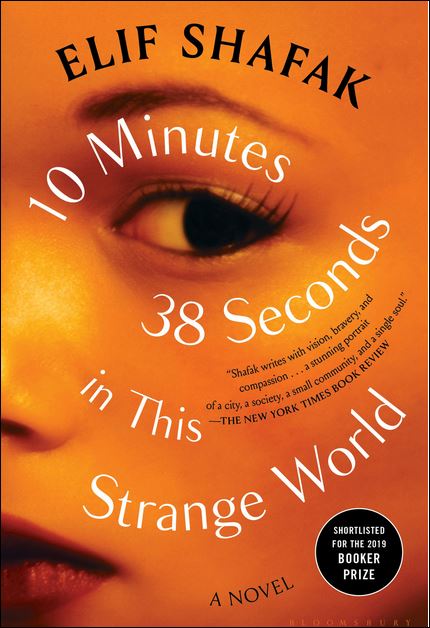
Tequila Leila's memories bring us back to her childhood in the provinces, a highly oppressive milieu with religion and traditions, shaped by a polygamous family with two mothers and an increasingly authoritarian father. Escaping to Istanbul, Leila makes her way into the sordid industry of sex trafficking, finding a home in the city's historic Street of Brothels. This is a dark, violent world, but Leila is tough and open to beauty, light, and the essential bonds of friendship.
In Tequila Leila's death, the secrets and wonders of modern Istanbul come to life, painted vividly by the captivating tales of how Leila came to know and be loved by her friends. As her epic journey to the afterlife comes to an end, it is her chosen family who brings her story to a buoyant and breathtaking conclusion.
Dareechah-e-Nigaarish
Toronto, ON
Canada
talat
